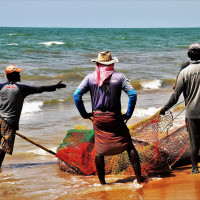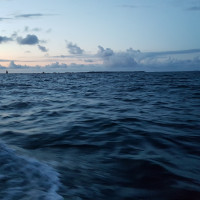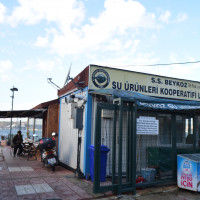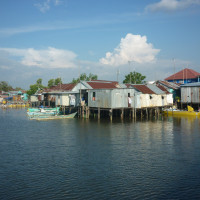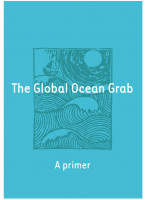Situating small-scale fisheries in the global struggle for agroecology and food sovereignty
This report explores the politics and practices in small- scale fisheries that form part of the global struggle for agroecology and food sovereignty.
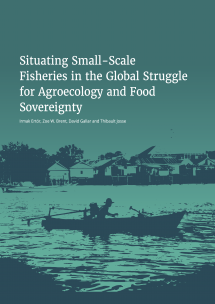
Downloads
-
Situating small-scale fisheries in the global struggle for agroecology and food sovereignty (PDF, 10.71 MB)Average time to read: 30 minutes minutes
-
La pesca en pequeña escala en el contexto de la lucha mundial por la agroecología y la soberanía alimentaria (PDF, 8.29 MB)Average time to read: 30 minutes minutes
-
La place de la pêche artisanale dans la lutte mondiale pour l’agroécologie et la souveraineté alimentaire (PDF, 11.67 MB)Average time to read: 30 minutes minutes
-
Agroekoloji ve Gıda Egemenliğine Yönelik Global Mücadelede Küçük Ölçekli Balıkçılığın Yeri (PDF, 9.28 MB)Average time to read: 30 minutes minutes
-
Menempatkan Perikanan Skala Kecil dalam Perjuangan Agroekologi dan Kedaulatan Pangan Global (PDF, 10.27 MB)Average time to read: 30 minutes minutes
Authors
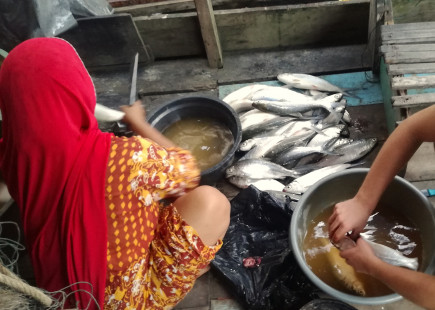
Zoe W. Brent
Download the full report in English, Spanish, French, Turkish or bahasa Indonesia.
It first frames the political context and explains the challenges facing small-scale fisher (SSF) initiatives and communities as well as how fishers are organised in order to confront these. It goes on to map the recent articulation of agroecology and food sovereignty with SSF initiatives and shows how alternative food systems that include fisheries are situated in relation to food sovereignty and other allied struggles. It links fishers’ realities and struggles to three key debates within mobilisations in support of food sovereignty by focusing on local-level insights.
The analysis examines the challenges of transforming and re-localising food economies by looking at experiences and the role of small-scale fishing cooperatives in Turkey offering direct sales. It then looks at struggles to defend natural resources and the importance of women’s leadership by examining gender and territory in Indonesian fisheries. Finally, it engages with the realities of labour in the food system, showing the central importance of confronting exploitation in the fisheries sector by exploring the intersections between migration and fisheries with a specific focus on fishers in West Africa and Europe. Taken together these cases illustrate the connections between fisheries and the struggles for agroecology and food system transformation by acknowledging their specific local characteristics but also highlighting existing practices that are contributing to struggles for food sovereignty.
Fieldwork was conducted for each case study during 2018 and 2019, drawing on participant observation and interviews with fishers and civil society organisations (CSOs) working in fishing communities. Since then, and as the report was being completed, the COVID-19 pandemic has exposed the vulnerabilities of the corporate-controlled global food system and in many cases deepened the very inequalities and injustices highlighted in this report. Long-distance transport, on which so much of the industrial food system relies, was interrupted. Fish prices plummeted, restaurants stopped buying or were closed, as were many fish auctions. Increased unemployment, lockdowns, and school closures exacerbated tensions within house- holds, and women are shouldering many of those additional burdens.
At the same time, the response to COVID-19 among SSF has demonstrated that much of the knowledge and infrastructure for building food sovereignty already exists. Local direct sales networks boomed, at the same time contributing to more resilient, food systems that value and directly connect seasonal, artisanal fishers to their local customers. Fisher–peasant food exchanges offered lifelines and food security to those in precarious economic circumstances. While most of the research on which this report is based predates these momentous changes and so is not centred on the pandemic, some points are highlighted throughout to underscore the relevance of these issues in a post-COVID-19 world.



